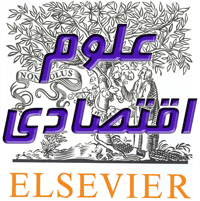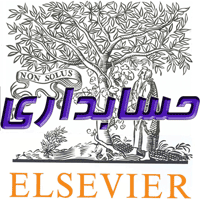دانلود مقاله isi بررسی تهاجم مالیاتی در شرکت های خصوصی خانوادگی
دانلود رایگان مقاله الزویر در مورد بررسی تهاجم مالیاتی در شرکت های خصوصی خانوادگی (کلیک کنید)
توضیحات :
وبسایت مکاله اقدام به ارائه پروژه ی ساینس دایرکت با فرمت pdf، از انتشارات الزویر برای رشته علوم اقتصادی، و با عنوان بررسی تهاجم مالیاتی در شرکت های خصوصی خانوادگی ، نموده است.
مشخصات این مقاله :
عنوان مقاله :
Tax aggressiveness in private family firms: An agency perspective
ترجمه فارسی عنوان :
بررسی تهاجم مالیاتی در شرکت های خصوصی خانوادگی: چشم انداز سازمان
سال انتشار : 2014
متعلق به مجله یا ژورنال : مجله استراتژی کسب و کار خانوادگی-Journal of Family Business Strategy
فرمت: PDF
تعداد صفحات: 11
شماره پروژه: 5124
کلمات کلیدی :
Tax aggressiveness,Family firms,CEO ownership,Board of directors
پرخاشگری مالیاتی، شرکت های خانوادگی، مالکیت مدیر عامل شرکت، هیئت مدیره
چکیده :
Abstract
This article investigates, from an agency perspective, whether private family firms, compared to private nonfamily firms, are more tax aggressive. Moreover, for private family firms, the effect of the extent of separation between ownership and management on tax aggressiveness is studied. Additionally, we verify whether effective board monitoring moderates this relationship. Using Finnish survey data, results show that private family firms are less tax aggressive than nonfamily firms. For the subsample of private family firms, firms with a lower CEO ownership share are more tax aggressive whereas the presence of an outside director in their board mitigates this direct effect.
مقدمه این مقاله :
Introduction
Accounting practices in (private) family firms are rarely studied (Salvato & Moores, 2010), even though ‘‘accounting research is one of the eldest business disciplines and family business represents the prevalent form of economic organization in the world’’ (Songini, Gnan, & Malmi, 2013, p. 71). With respect to the accounting topic of our study, tax aggressiveness, current scant literature mainly focuses on public family firms and how their use of tax aggressiveness differs from public nonfamily firms (for example Chen, Chen, Cheng, & Shevlin, 2010). Whether tax aggressiveness also prevails within private family firms and how this tax aggressive behaviour can differ within the heterogeneous group of private family firms remains unstudied. However, private family firms are characterized by an entanglement of the family throughout the organization which affects the nature and extent of agency conflicts within the family firm and is expected to affect the management’s tax aggressive behaviour. Tax aggressiveness is defined as downward management of taxable income through tax planning activities which can be legal or illegal or may lie in between (Frank, Lynch, & Rego,2009). Recent evidence shows that management engaging in tax aggressive activities to minimize tax payment is becoming an increasingly common feature of the corporate landscape around the world (Lanis & Richardson, 2011). Desai and Dharmapala (2006) indicate that the analysis of a tax aggressiveness decision is embedded in an agency framework in which managers can enjoy private benefits of control at the expense of other shareholders. As the CEO plays an economically significant role in determining the level of tax avoidance that firms undertake, the CEO is the key driver of corporate behaviour (Dyreng, Hanlon, & Maydew, 2010;Hambrick & Mason, 1984; Zona, Minoja, & Coda, 2013). To determine the level of tax aggressiveness a family firm decides to engage in, the CEO will trade off the marginal benefits against the marginal costs of managing taxes (Molero & Pujol, 2012).
توجه :
– این مقاله به صورت کامل و با فرمت پی دی اف آماده خرید اینترنتی و دانلود آنی میباشد.
توضیحات بیشتر در مورد پروژه :
در این مقاله خواهید خواند که از دیدگاه سازمان ، شرکت های خصوصی خانوادگی در مقایسه با شرکت های غیر خصوصی تهاجم مالیاتی بیشتری دارد یا خیر. همچنین در این مقاله تهاجم مالیاتی را در شرکت های خصوصی خانوادگی بررسی می کنیم.


